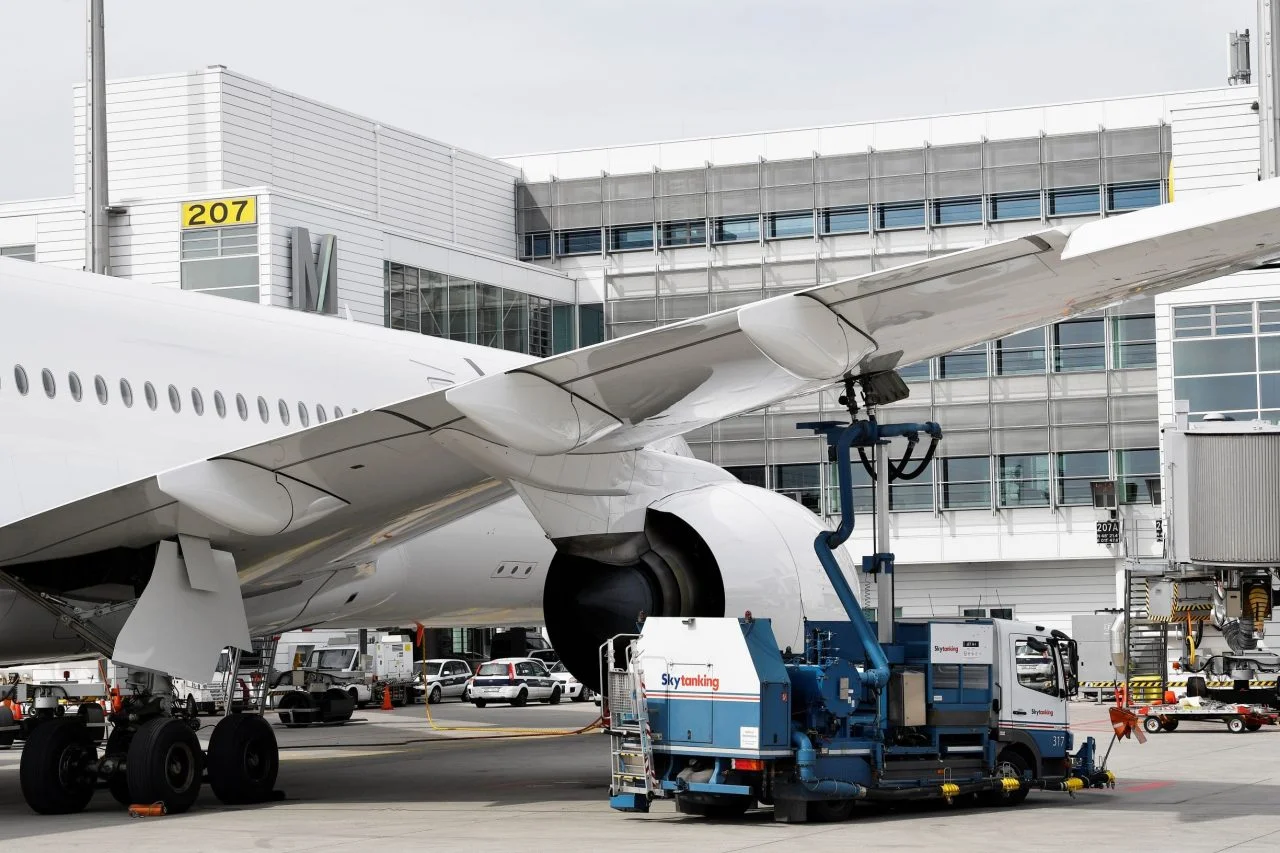
Aviation fuel technology has come a long way since the early days of flight. Have you ever wondered what powers those massive jets soaring through the sky? Jet fuel isn't just any ordinary fuel; it's a highly specialized substance designed to meet the rigorous demands of aviation. From its unique composition to the stringent safety standards it must meet, aviation fuel plays a crucial role in ensuring safe and efficient air travel. This blog post will delve into 15 intriguing facts about aviation fuel technology, shedding light on its complexities and innovations. Buckle up and prepare for a fascinating journey through the world of aviation fuel!
Key Takeaways:
- Aviation fuel has evolved from basic gasoline to advanced jet fuels, improving safety and efficiency in air travel. Innovations like biofuels and synthetic fuels are paving the way for more sustainable options.
- The future of aviation fuel holds exciting possibilities, from electric aviation to hydrogen fuel and hybrid systems. These innovations aim to make air travel cleaner and more environmentally friendly.
The Evolution of Aviation Fuel
Aviation fuel has come a long way since the early days of flight. From basic gasoline to advanced jet fuels, the technology behind what powers aircraft has evolved significantly.
-
Early aviation fuel was essentially automobile gasoline. Early planes used the same fuel as cars, which limited their performance and range.
-
The introduction of avgas (aviation gasoline) in the 1920s marked a significant improvement. Avgas had higher octane levels, which allowed for more powerful engines.
-
Jet fuel development began in the 1940s. Jet engines required a different type of fuel, leading to the creation of kerosene-based jet fuels like Jet-A and Jet-B.
Types of Aviation Fuel
Different types of aircraft require different types of fuel. Each type has unique properties tailored to specific engine requirements.
-
Avgas is still used today in small piston-engine aircraft. It remains the go-to fuel for general aviation.
-
Jet-A is the most common jet fuel used in commercial aviation. It is a kerosene-based fuel with additives to prevent freezing at high altitudes.
-
Jet-B is a blend of kerosene and gasoline. It is used in extremely cold climates due to its lower freezing point compared to Jet-A.
Environmental Impact and Innovations
The aviation industry is constantly seeking ways to reduce its environmental footprint. Innovations in fuel technology play a crucial role in this effort.
-
Biofuels are being developed as a sustainable alternative. Made from renewable resources like algae and plant oils, biofuels can significantly reduce carbon emissions.
-
Synthetic fuels are another promising innovation. These fuels are created using chemical processes that convert carbon dioxide and water into hydrocarbons, mimicking traditional jet fuel.
-
Blended fuels combine traditional jet fuel with biofuels or synthetic fuels. This approach allows for a gradual transition to more sustainable options.
Safety and Performance Enhancements
Safety and performance are paramount in aviation. Fuel technology advancements have contributed to making flights safer and more efficient.
-
Anti-icing additives are included in jet fuels to prevent ice formation in fuel lines at high altitudes. This ensures a steady fuel supply to the engines.
-
Static dissipaters are added to reduce the risk of static electricity buildup, which can cause sparks and potentially ignite fuel vapors.
-
Fuel efficiency improvements have been achieved through better refining processes and additives that enhance combustion, leading to longer flight ranges and lower fuel consumption.
Future of Aviation Fuel
The future of aviation fuel looks promising with ongoing research and development aimed at making air travel more sustainable and efficient.
-
Electric aviation is on the horizon. While not a fuel in the traditional sense, electric power could revolutionize short-haul flights with zero emissions.
-
Hydrogen fuel is being explored as a potential game-changer. Hydrogen can be used in fuel cells or burned directly in modified jet engines, offering a clean alternative to fossil fuels.
-
Hybrid systems combining traditional jet engines with electric motors or hydrogen fuel cells could provide a bridge to fully sustainable aviation, reducing emissions while maintaining performance.
The Future of Aviation Fuel
Aviation fuel technology has come a long way, and it's not stopping anytime soon. From sustainable aviation fuel (SAF) to hydrogen-powered planes, the industry is pushing boundaries to reduce its carbon footprint. These advancements not only promise a greener future but also aim to make air travel more efficient and cost-effective.
Biofuels and electric propulsion are gaining traction, showing that innovation is at the heart of aviation. Airlines and manufacturers are investing heavily in research and development to bring these technologies to the mainstream.
As passengers, we can look forward to cleaner skies and quieter flights. The journey towards sustainable aviation is ongoing, but the progress made so far is promising. Keep an eye on these developments—they're set to transform how we fly, making air travel better for both us and the planet.
Frequently Asked Questions
Was this page helpful?
Our commitment to delivering trustworthy and engaging content is at the heart of what we do. Each fact on our site is contributed by real users like you, bringing a wealth of diverse insights and information. To ensure the highest standards of accuracy and reliability, our dedicated editors meticulously review each submission. This process guarantees that the facts we share are not only fascinating but also credible. Trust in our commitment to quality and authenticity as you explore and learn with us.


